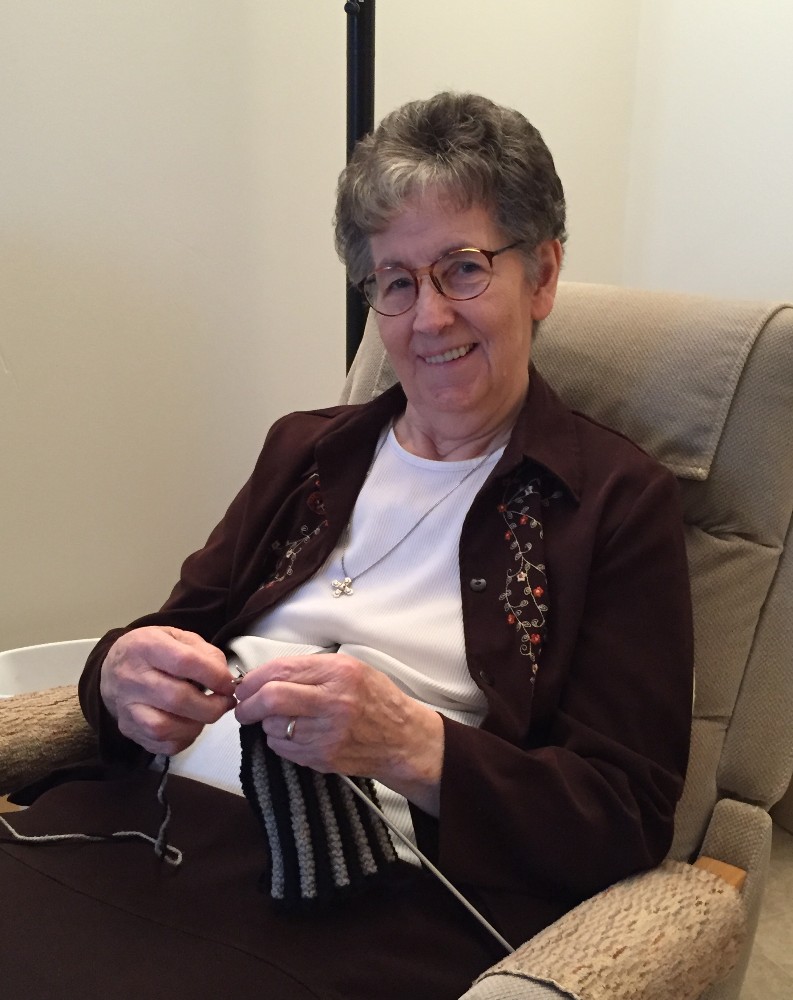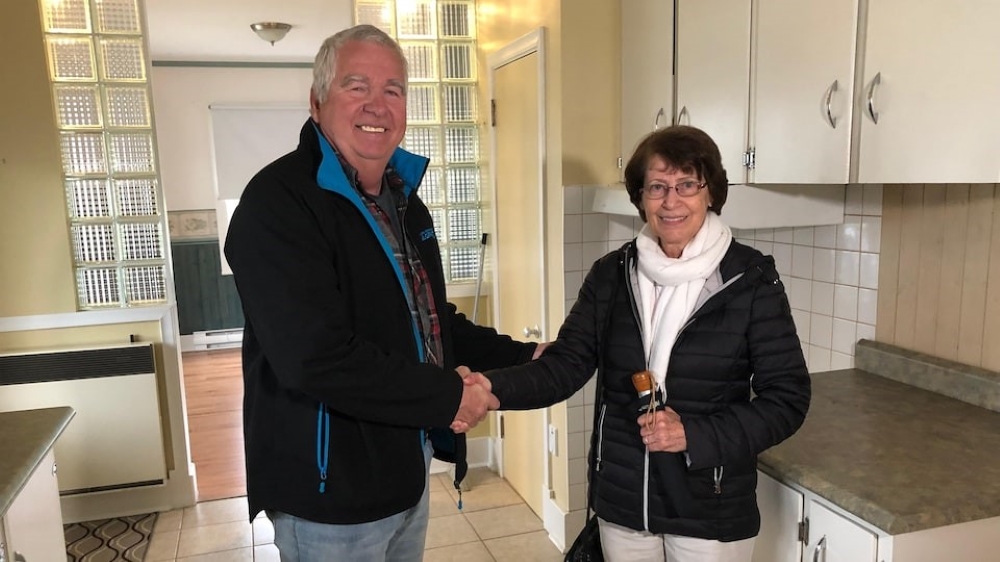The end of the farming experience
Today, the average age in the Congregation is 85. The Sisters are no longer capable of maintaining such a demanding asset. Sale of the agricultural land had become unavoidable. All in all, they had owned the Rang Saint-Joseph farmland for almost 90 years. From 1935 to 1967, they cultivated the land to feed their Congregation. Then, from 2001 to 2016, the NPO Fermes Solidar specialised in organic culture and sheep breeding.
But the end of an era had come. The sale of Fermes Solidar was the final curtain of the Congregation’s agricultural adventure. The Sisters, however, retained many happy memories of their time on the farm. Sister Murielle Lévesque (Saint-Luc) tells us about some of those great memories of the Saint-Joseph farm, having lived there from 1978 to 1988.

Sister Murielle Lévesque (Saint-Luc) knitting. February 6, 2020.
Listen to the audio excerpt with transcription: Interview with Sister Murielle Lévesque
Many offers came from private farm operators, companies, and local organisations wanting to take over the farmland. The Sisters carefully assessed every offer, as they considered it important for the new owners to pursue the Congregation’s educational and environmental values, and Fermes Solidar’s mission. One project stood out and met the Congregation’s requirements. In 2019, the farmland and buildings of Saint-Joseph farm were sold to Pierre Girard, a local dairy producer. Mr. Girard already operated a farm on Rang Saint-Joseph.

The farmer Pierre Girard upon purchasing Fermes Solidar from the Notre-Dame-du-Bon-Conseil Congregation, represented by Sister Céline Fredette, 2019.
The new owner wanted to pursue the mission initiated by the Sisters at the farm. He concluded a crop-share agreement with Saguenay City, with a stimulating, innovative project in mind: the Solidar bio-food platform. The project aims to turn the farm into an agricultural business incubator for vegetable growers, as well as an experimental platform for regional organic farming. The goal is to support next-generation farmers and the regional economy, and to stimulate research, innovation and training within a partnership framework: Université du Québec à Chicoutimi, Cégep de Chicoutimi, Centre de géomatique du Québec, Promotion Saguenay, Nutrinor, Ville de Saguenay and MRC du Fjord-du-Saguenay. The future will tell, but it seems that Fermes Solidar’s social-educational mission is in good hands.
The Sisters are satisfied with what they accomplished with the farm, and happy that the values they upheld will be perpetuated through their agricultural heritage.
I am very serene, as is the community. The Sisters are overjoyed, happy. The mission can continue, and perpetuate.
Sister Céline Fredette of the Notre-Dame-du-Bon-Conseil Congregation, interview with Radio-Canada, June 11, 2019

